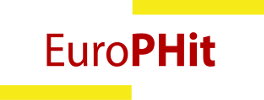- Home
- Energy Retrofits
- Projects
- Finance
- Financial workshops
- 1st Financial workshop - London, UK
- 2nd Financial workshop - Bratislava, SK
- 3rd Financial workshop - Copenhagen, DK
- 4th Financial workshop - Dublin, IE
- 5th Financial Workshop - Milan, IT
- 6th Financial Workshop - Leipzig, DE
- 7th Financial Workshop - Sofia, BG
- 8th Financial Workshp - Sophia, BG
- 9th Financial Workshop - Växjö, SE
- 10th Financial Workshop - Barcelona, ES
- 11th Financial Workshop - Barcelona, ES
- 12th Financial Workshop in Paris, France
- Final Financial Workshop
- Questionnaires
- Financial workshops
- Products
- Events/Awards
- Downloads
3rd Financial Workshop - Copenhagen, DK
Third workshop held to explore the financing of energy efficient step-by-step retrofits
Date: 26th February 2015
Location: Merkur Andelskasse, Vesterbrogade 40, 1620 Copenhagen, Denmark
The official programme and invitation can be downloaded here (in Danish) | Read related Press release (in Danish)


2015 Copenhagen, DK. The third EuroPHit Financial Workshop was held in Merkur Andelkassel (left); Klaus Stocker from IZN presenting at the Workshop (right), Photos © Passivhus.dk
Summary:
Claus Skytt of Merkur, who kindly hosted the workshop, then presented the bank’s financial products. Merkur makes bank loans with lower interest rate for “climate” projects: Energy efficiency, PV’s etc. The lower rates are covered by lower profit to Merkur. Merkur has an excess of deposits and finds that there is too little interest in these loans.
By refurbishments Merkur demands an overall plan for the actions. Sometimes they finance the most feasible steps first and implement the next steps after some years, when they are about to pay back, in order to keep the total loan down. In this way they finance not only the most feasible but all feasible actions, implementing the full energy saving potential.
Jette Moldrup, manager of the lending department at Kommunekredit presented their way of working. It’s an association of all the Danish municipalities (kommuner). It issues bonds internationally and in this way offers loans to the municipalities, the regions, and to companies guaranteed by or owned by them. They don’t take deposits and they have never had a loss on a loan. She finds that there are already a lot of energy efficiency projects going on, and Kommunekredit currently offers financing at around 0% interest rate. She hardly sees the need of further subsidies. In ESCO-projects Kommunekredit often cover the financing, as ESCO-companies can’t raise financing at comparable interest rates and thus wouldn’t realise the same amount of energy savings.
Georg Kraft and Klaus Stocker presented the EuroPHit-material on financing models. Some terminology was put in place:
- Recourse financing respectively project financing
- Forfaiting
During and after the talks we had some valuable discussions, one of them about ESCO:

2015 Copenhagen, DK. Discussion at 3rd Financial Workshop, Photo © Passivhus.dk
Most ESCO-projects have a short economical horizon (up to 10 years); not discussing 20, 40 or 60 years service life of the implemented solutions. This is contrary to the model, which Merkur and EuroPHit subscribe to.
Also ESCO generally does not increase the local knowledge and experience with energy savings. For this exact reason the Danish municipality Sønderborg has decided to not use ESCO.
Other issues discussed were:
- Owner-tenant: Merkur is cooperating with the Danish Tenants’ Association (Lejernes Landsorganisation) to bridge the gap between the owners investment and the tenants’ savings
- Areas, typically rural, or far off the economical centres, with low prices of housing and even empty houses: Even if an energy saving measure is feasible, and even if the owner has the economy to pay back a loan anyway, a bank may deny to finance the project, as it will not raise the possible sales price of the house anywhere near the amount invested
- On the other hand energy labelling seems to play a role on the pricing in areas with a more regular housing market
- Schools is another example, where the sales price will hardly increase due to energy saving measures, as there’s often not really a working market for this kind of buildings
You can download presentations from Financial workshops or browse other downloadable EuroPHit materials here.

